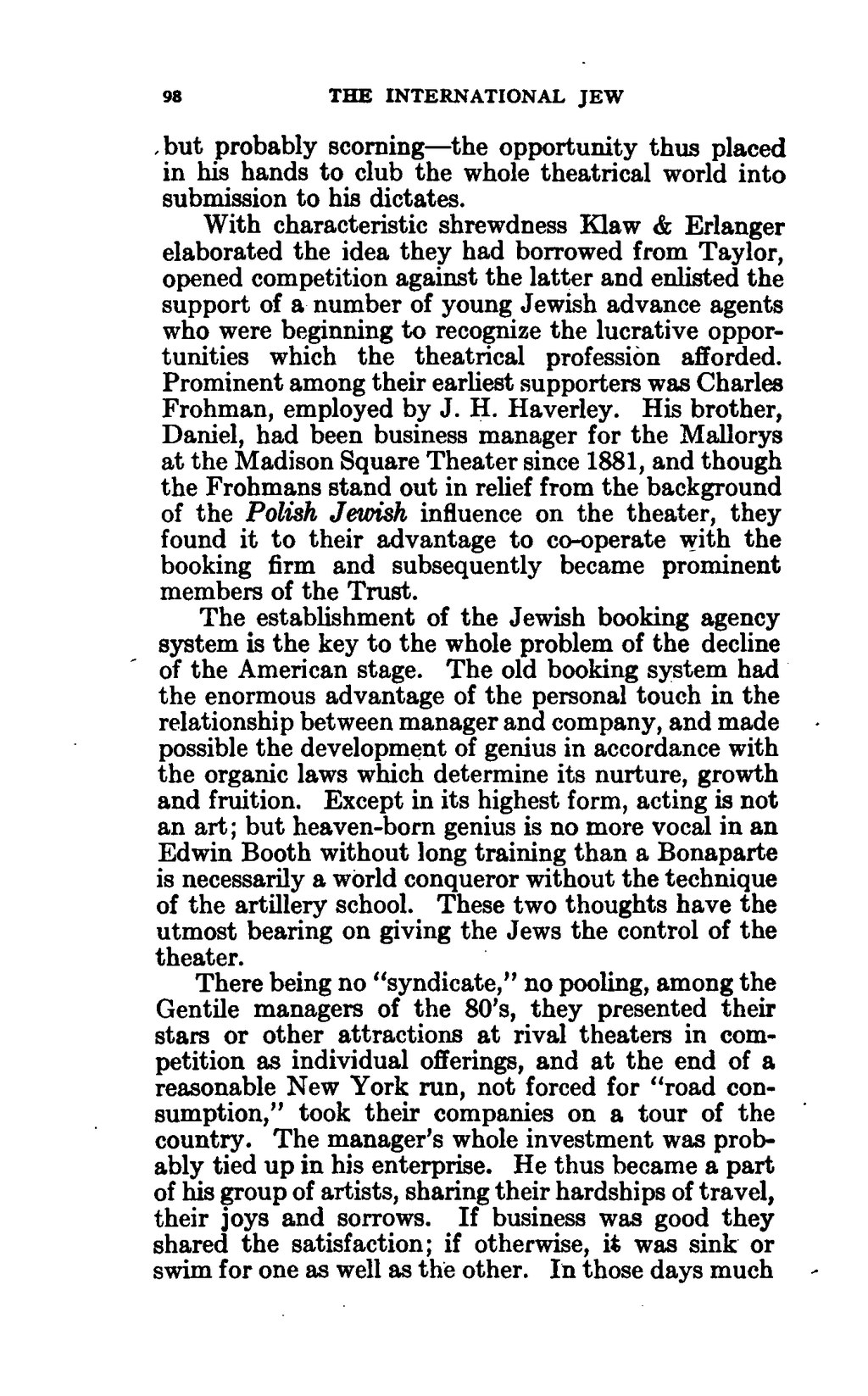but probably scorning—the opportunity thus placed in his hands to club the whole theatrical world into submission to his dictates.
With characteristic shrewdness Klaw & Erlanger elaborated the idea they had borrowed from Taylor, opened competition against the latter and enlisted the support of a number of young Jewish advance agents who were beginning to recognize the lucrative opportunities which the theatrical profession afforded. Prominent among their earliest supporters was Charles Frohman, employed by J. H. Haverley. His brother, Daniel, had been business manager for the Mallorys at the Madison Square Theater since 1881, and though the Frohmans stand out in relief from the background of the Polish Jewish influence on the theater, they found it to their advantage to co-operate with the booking firm and subsequently became prominent members of the Trust.
The establishment of the Jewish booking agency system is the key to the whole problem of the decline of the American stage. The old booking system had the enormous advantage of the personal touch in the relationship between manager and company, and made possible the development of genius in accordance with the organic laws which determine nurture, growth and fruition. Except in its highest form, acting is not an art; but heaven-born genius is no more vocal in an Edwin Booth without long training than a Bonaparte is necessarily a world conqueror without the technique of the artillery school. These two thoughts have the utmost bearing on giving the Jews the control of the theater.
There being no “syndicate,” no pooling, among the Gentile managers of the 80’s, they presented their stars or other attractions at rival theaters in competition as individual offerings, and at the end of a reasonable New York run, not forced for “road consumption,” took their companies on a tour of the country. The manager’s whole investment was probably tied up in his enterprise. He thus became a part of his group of artists, sharing their hardships of travel, their joys and sorrows. If business was good they shared the satisfaction; if otherwise, it was sink or swim for one as well as the other. In those days much
